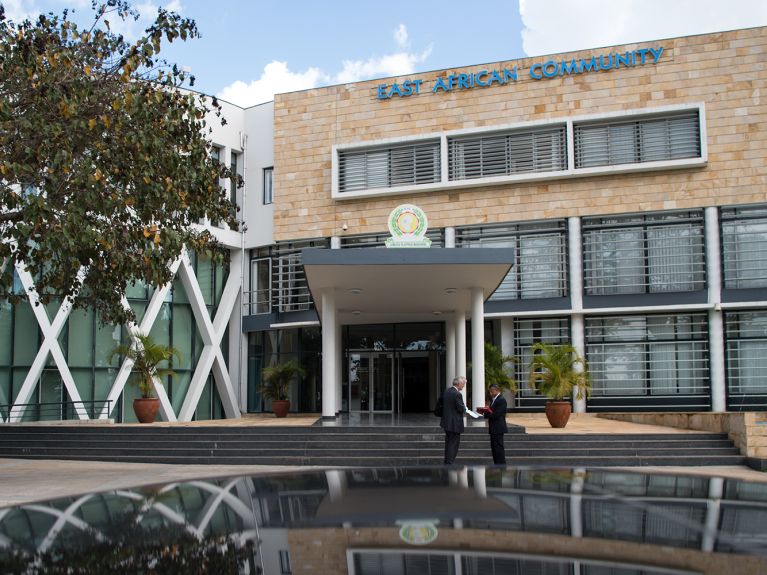Hope for a quick recovery
The Covid-19 pandemic has hit the East African economy hard – exports to Germany have collapsed.

From a medical point of view, the coronavirus pandemic in the countries of East Africa seems to have been relatively mild so far. But economically, all East African countries are feeling the effects of the crisis. The International Monetary Fund (IMF) has revised its 2020 growth expectations for East Africa significantly downwards. According to a survey by the Institute for the German Economy, the greatest challenge for East African industry is the lower demand brought about by the coronavirus crisis.
Decreased purchasing power
Many observers, such as Iraj Abedian, founder of Pan-African Capital Holdings, are convinced that the coronavirus pandemic will also set back the fight against poverty by years. Trade prospects are likewise limited. For most industries, the low purchasing power of the population and the fragmentary energy and transport infrastructure make a real exchange of goods very difficult.
Kenya, Uganda, Tanzania, Rwanda, Burundi and South Sudan make up the East African Community (EAC) and are commonly treated as a market of around 170 million people. In Kenya, the largest economy in the region, trade with Germany was around 500 million euros in 2019; in Tanzania the trade volume was 250 million euros.
Kenya is Germany’s most important economic partner in the region. More than 50 German companies are represented here. Traditionally, these are mainly German businesses with various focuses such as industrial parts and accessories or medical technology.
In the important sector of horticulture (floriculture), German investors have been in business in Kenya for many years. Together with tea production, this industry is one of the pillars of the Kenyan export economy. In addition to floriculture, the horticultural sector looks upon export of fruit production to Europe as a promising branch.
Source of hope: the middle class
But the demand for export products from the East African Community, such as cut flowers grown in Kenya, has temporarily collapsed completely due to the coronavirus pandemic. Kenya’s coffee and tea exports have also suffered.
With the emergence of a small middle class, the region had come to the attention of the consumer goods industry before the coronavirus crisis, above all the Hamburg cosmetics manufacturer Beiersdorf. The company has been active on the Kenyan market since the early 1980s. Originally, the small investment was more of a philanthropic project; in the meantime, the family company has come to base its position in the region on its presence in the country, with its own production. The young African economy was considered vital before the coronavirus: we can only hope that it will recover quickly.


